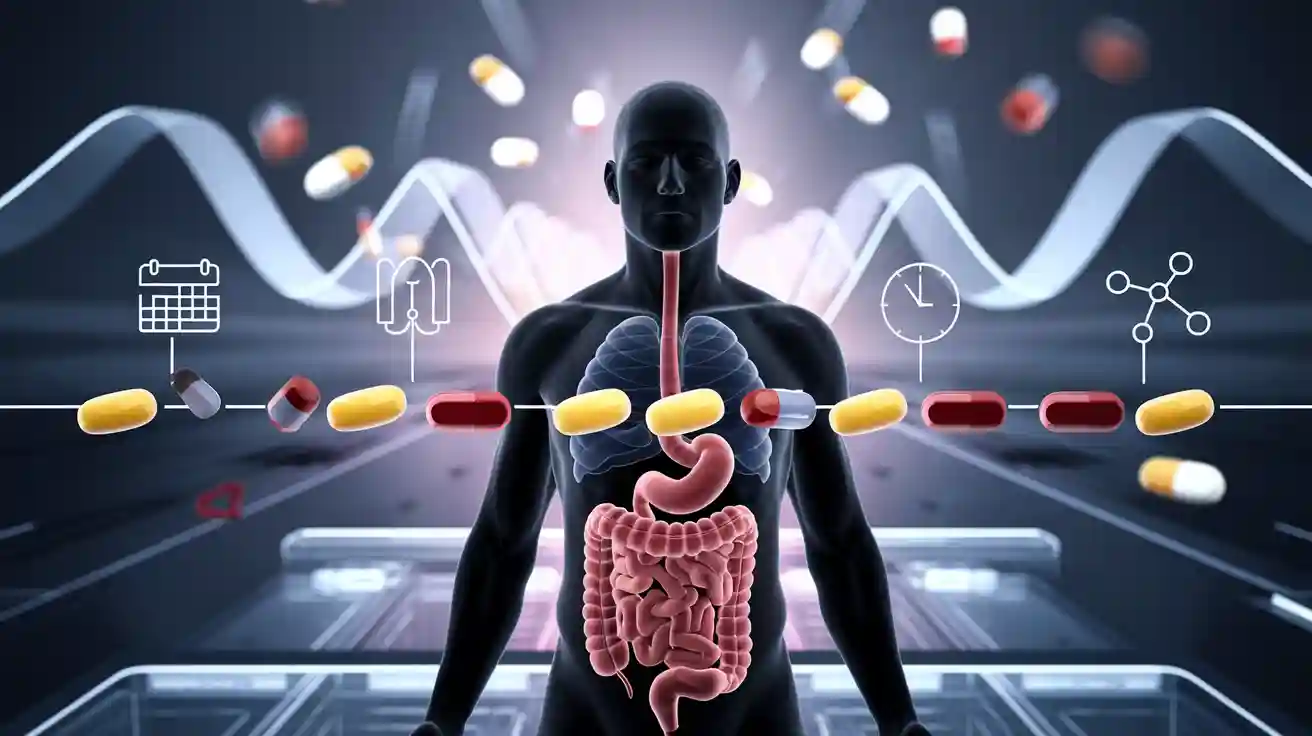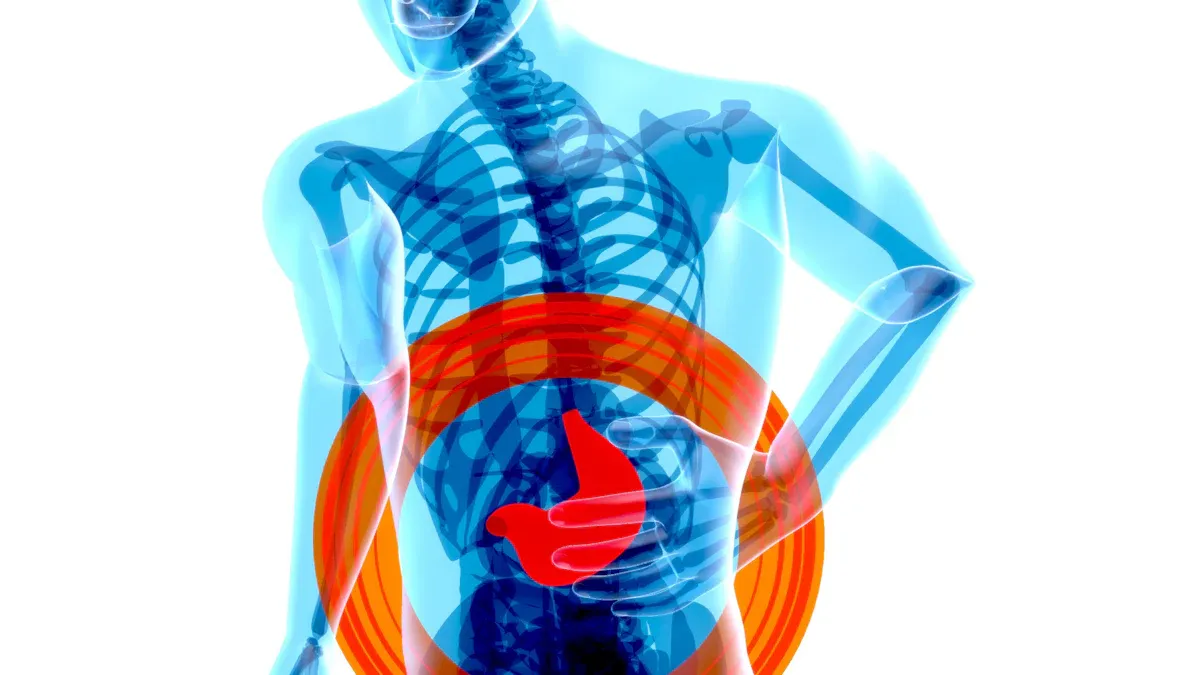Digestive Timeline for Vitamins What to Expect in 2025
Table of Contents

You may wonder how long does it take for vitamins to work. The digestive timeline depends on the type of vitamin. Water-soluble vitamins like vitamin C absorb quickly, often within hours, while fat-soluble vitamins such as vitamin D may take longer to absorb and show effects. Your age, health, and digestion play a big role.
The declining absorption of calcium, vitamin D, and vitamin B12 in older adults is compounded by reduced intake, making these nutrients of concern. Adults aged 50 and older often have suboptimal intakes of vitamin D and calcium, and the inadequacy of vitamin B12 is primarily due to declining digestion and absorption rather than insufficient intake. Strategies to improve digestion and absorption, such as maintaining a healthy gut microbiome and ensuring optimal gastric acidity, are crucial for enhancing nutrient availability.
A considerable percentage of elderly participants were at risk for vitamin deficiencies, particularly vitamins B1, B6, B12, and folate. Regular supplementation significantly improved vitamin levels in this population, indicating that age-related issues with nutrient intake and digestion can be mitigated through moderate, regular supplementation.
You might see new supplement technology in 2025 that helps your body use vitamins better.
Digestive Timeline for Vitamins

How Long Do Vitamins Take to Work?
You might ask, how long does it take for vitamins to work? The answer depends on the type of vitamin, your body, and your starting levels. Some vitamins start working soon after you take them, but you may not notice changes right away. If you have a deficiency, you could feel better faster. For most people, the digestive timeline for vitamins looks like this:
- You may notice the effects of water soluble vitamins, like B vitamins, within a day.
- After a week, you might feel more energy or better mood.
- In two weeks, your body starts to show more changes from the nutrients.
- After a month, your body adjusts to the new vitamin levels.
- By three months, you reach a steady, nutrient-rich state.
- After a year, you complete a full cycle of nutritional improvement.
Many people feel changes in energy or mood within weeks, but some need several months to see full results. The digestive timeline for vitamins can be shorter if you start with a big deficiency.
Water-Soluble vs. Fat-Soluble Vitamins
You need to know the difference between water soluble vitamins and fat soluble vitamins to understand how long does it take for vitamins to work. Water soluble vitamins, like vitamin C and all B vitamins, dissolve in water. Your body absorbs them quickly into the bloodstream, but it does not store them. You need to take these vitamins often because your body gets rid of extra amounts in your urine.
Fat soluble vitamins, such as vitamins A, D, E, and K, dissolve in fat. Your body absorbs them with the help of dietary fat. These vitamins get stored in your liver and body fat, so you do not need to take them as often. Because your body stores them, fat soluble vitamins take longer to show effects. You might wait weeks or even months to notice changes.
Here is a table to help you compare the digestive timeline for vitamins:
| Type of Vitamin | Absorption and Storage | Examples | When You Notice Effects |
|---|---|---|---|
| Water soluble vitamins | Absorbed directly into the bloodstream; not stored; need regular replenishment | Vitamin C, B vitamins | Days to a few weeks |
| Fat soluble vitamins | Absorbed with dietary fat; stored in body fat and liver | Vitamins A, D, E, K | Weeks to months |
You can see that water soluble vitamins work faster, but you need to keep taking them. Fat soluble vitamins build up in your body, so you may not see results right away. The digestive timeline for vitamins depends on how your body handles each type.
- Water soluble vitamins are not stored, so you can become deficient more easily.
- Fat soluble vitamins stay in your body longer, so deficiencies are less common, but it takes longer to fix them if you have one.
If you take vitamin supplements, you should know that the form and timing can affect how long does it take for vitamins to work. For example, taking fat soluble vitamins with a meal that has some fat helps your body absorb them better. Water soluble vitamins can be taken any time, but your body will get rid of what it does not need.
The digestive timeline for vitamins also changes with age, health, and diet. Older adults may absorb vitamins more slowly, especially vitamin D and B12. If you have a healthy gut and eat balanced meals, you help your body with vitamin absorption.
Tip: To get the most from your supplements, follow the best time for each vitamin and eat a balanced diet. This helps your body use both water soluble vitamins and fat soluble vitamins more efficiently.
How Do Vitamins Digest?
The Digestive Process
When you swallow vitamins, your body starts a journey to digest and absorb them. Here is how the process works:
- You take supplements or eat foods with vitamins. They travel down your esophagus into your stomach.
- In your stomach, acids and enzymes begin to digest the vitamins. The breakdown starts here, but it does not finish.
- The vitamins move into your small intestine. Digestive juices from your pancreas and liver help break down nutrients. Bile from your gallbladder helps digest fats.
- In the small intestine, vitamin absorption happens. Water-soluble vitamins, like B and C, enter your bloodstream directly. Fat-soluble vitamins, such as A, D, E, and K, need bile acids to form micelles. These micelles help your body digest and absorb fat-soluble vitamins.
- Your bloodstream carries water-soluble vitamins to your cells. Fat-soluble vitamins enter the lymphatic system before reaching your blood.
- Extra water-soluble vitamins leave your body through urine. Fat-soluble vitamins get stored in your liver and body fat.
Your digestive tract works on a schedule. Food stays in your stomach for up to 6 hours. It spends 2 to 8 hours in your small intestine, where most vitamin absorption takes place. The colon can hold food for much longer, but vitamins are mostly absorbed before this stage.
| Digestive Segment | Time Spent |
|---|---|
| Gastric emptying | 0 to 6 hours |
| Small intestine transit | 2 to 8 hours |
| Colonic transit | 6 minutes to 134 hours |
Gut bacteria also help digest vitamins. Some bacteria, like Bifidobacterium and Bacteroides, make vitamins K and B. These microbes can supply up to half of your vitamin needs. Good digestive health supports this process.
Tip: Eating a balanced diet and caring for your gut helps your body digest and absorb vitamins better.
Absorption Pathways
Your body uses different pathways for vitamin absorption. Water-soluble vitamins use passive diffusion or active transport to enter your bloodstream. Fat-soluble vitamins need bile salts to form micelles. These get packaged into chylomicrons and enter your lymphatic system.
| Vitamin Type | Absorption Pathway |
|---|---|
| Water-Soluble | Absorbed directly into the bloodstream through passive diffusion or active transport. |
| Fat-Soluble | Incorporated into micelles with bile salts, then packaged into chylomicrons and enter the lymphatic system. |
Vitamins from food may need extra steps to digest. They often come in bound forms and need enzymes to release them. Supplements usually have vitamins in a free form, making them easier to absorb. Food can help or block vitamin absorption. For example, vitamin E can help your body absorb vitamin A.
Your digestive system works hard to digest vitamins and send them where your body needs them. Keeping your digestive health strong helps you get the most from your vitamins.
Factors Affecting the Digestive Timeline
Age and Health
Your age and health play a big role in how your body digests vitamins. When you are young, your stomach acid and gut bacteria work well. This helps you digest nutrients like vitamin C and b vitamins quickly. As you get older, your stomach acid and digestive enzymes drop. This makes it harder to digest and absorb vitamins such as vitamin B12, calcium, and magnesium. You may notice more vitamin deficiencies as you age. Health conditions can also slow down how you digest vitamins. For example, pancreas or liver disease can cause vitamin deficiency by blocking the absorption of fat-soluble vitamins.
- In early life, your body absorbs nutrients well.
- By midlife, your stomach acid and enzymes decrease, making it harder to digest some vitamins.
- As you age, your digestive system changes and absorbs fewer nutrients.
- Chronic health issues can lead to vitamin deficiencies and other health problems.
| Vitamin Deficiency | Health Conditions Impacted | Symptoms/Consequences |
|---|---|---|
| Vitamin B12 | Pernicious anemia | Nerve problems |
| Vitamin D | Bone diseases | Weak bones |
| Vitamin A | Liver disease | Night blindness |
| Vitamin E | Fat malabsorption | Anemia |
Diet and Supplement Form
What you eat and how you take vitamin supplements affect how well you digest vitamins. Some foods help you absorb nutrients better. For example, eating healthy fats with vitamin D or vitamin A helps your body digest them. The form of supplements matters too. Liquid supplements and nanoparticle forms digest faster than tablets. Liquids do not need to break down, so your body absorbs them quickly. Tablets may have fillers that slow down absorption.
| Factor | Influence on Absorption |
|---|---|
| Dosage | High doses of some vitamins, like thiamine, are not absorbed well. |
| Supplement Form | Liquids and nanoparticles digest faster than tablets. |
| Divided Doses | Taking smaller doses more often helps your body digest vitamins better. |
Tip: Choose the right supplement form and take vitamins with the right foods to build an effective vitamin regimen.
Bioavailability
Bioavailability means how much of a vitamin your body can use after you digest it. Not all the vitamins you eat or take as supplements reach your cells. The bioavailability of a vitamin depends on your age, health, and the form of the supplement. If your body cannot absorb a vitamin well, you may not get the full benefit, even if you take enough. The bioavailability of a vitamin is key for an effective vitamin regimen. If you want to avoid vitamin deficiency, focus on both the amount and the bioavailability of a vitamin.
Absorption rates can vary a lot between people. Factors like age, sex, genetics, gut bacteria, and physical activity all change how you digest and use vitamins. You may need to try different supplements or diets to find what works best for you.
What to Expect in 2025

New Supplement Technologies
You will see exciting changes in how you take vitamins in 2025. Companies are using technology to make vitamin supplements work better for you. Many people now want products that fit their own health needs. You can expect more personalized options that match your body and lifestyle.
- The market for customized supplements is growing fast. You will find more products designed just for you.
- AI technology helps companies create supplements based on your health profile. You might answer questions or use an app to get a plan that fits your needs.
- Genetic testing is becoming part of supplement routines. You can learn about your genes and get advice on which essential vitamins you need most.
- New delivery methods, like liquid drops or easy-to-absorb capsules, help your body use vitamins faster.
If you want to improve your vitamin d levels, you may see new products that help your body absorb vitamin d more easily. These changes make it easier to create a consistent vitamin routine that supports your health.
Research and Trends
Researchers are studying how to help you get the most from vitamins. They focus on making sure supplements work for different groups of people. For example, scientists look at how vitamin d helps older adults keep their bones strong. Some studies show that multivitamins may help with memory and thinking as you age.
- Targeted supplements for certain ages or health needs are a big trend.
- Personalized nutrition is getting more attention. You can expect more advice based on your own health.
- Safety and quality are important. Experts want to make sure supplements are safe and do what they promise.
- New ways to deliver vitamins, like better capsules or powders, help your body absorb them.
Note: Experts do not expect big changes in official advice for vitamin supplements in 2025. Most people can get enough vitamins, including vitamin d, from a balanced diet. You only need supplements if you have a deficiency or special health needs.
You can support your health by learning how your body digests vitamins and by choosing the right approach for your needs. Different vitamins absorb and work in your body in unique ways. Your genes, lifestyle, and stress can change how well you absorb nutrients. Try these tips to get the most from your supplements:
- Take multivitamins with food.
- Pair fat-soluble vitamins with healthy fats.
- Space out calcium, zinc, and magnesium at different meals.
- Drink enough water each day.
Stay informed about new supplement options. Watch for trends like personalized nutrition and organic products as the market grows.
FAQ
How long should you wait to eat after taking a vitamin supplement?
You can eat right after taking most vitamin supplements. Some vitamins, like vitamin D, absorb better with food. Try to take fat-soluble vitamins with a meal that has healthy fats for best results.
Can you take all your vitamins at the same time?
You can take most vitamins together. Some minerals, like calcium and magnesium, may block each other’s absorption. Space these out during the day for better results.
What happens if you take too many vitamins?
Taking too many vitamins can cause side effects. You might feel sick or get headaches. Always follow the recommended dose on the label or ask your doctor for advice.
Do vitamins work better in liquid or pill form?
Liquid forms often absorb faster than pills. Your body does not need to break down a liquid. Choose the form that fits your needs and comfort.

Poseidon
Master of Nutritional Epidemiology, University of Copenhagen, Herbal Functional Nutrition Researcher
Focus: The scientific application of natural active ingredients such as Tongo Ali, Horny Goat Weed, and Maca to sexual health and metabolic regulation.
Core Focus:
Men: Use a combination of Tongo Ali (an energizing factor) + Maca (an energy reserve) to improve low energy and fluctuating libido.
Women: Use a combination of Horny Goat Weed (a gentle regulator) + Maca (a nutritional synergist) to alleviate low libido and hormonal imbalances.
Stressed/Middle-Aged Adults: This triple-ingredient synergy supports metabolism, physical strength, and intimacy.
Product Concept:
Based on traditional applications and modern research (e.g., Tongo Ali promotes testosterone-enhancing enzyme activity, and icariin provides gentle regulation), we preserve core active ingredients and eschew conceptual packaging—using natural ingredients to address specific needs.
Simply put: I'm a nutritionist who understands "herbal actives." I use scientifically proven ingredients like Tongo Ali, Epimedium, and Maca to help you make "sexual health" and "nutritional support" a daily routine.
